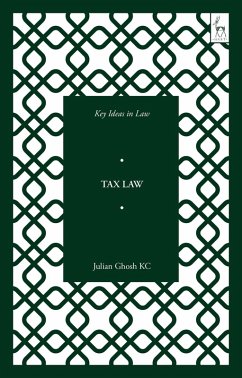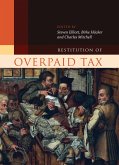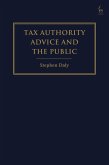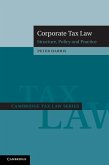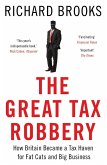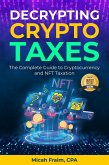This book provides a short and clear guide to key ideas which underpin the UK tax code and illustrates the wider political and economic issues students need to know about when studying tax law. Some of these key ideas are controversial and the subject of much discussion and debate.
The book explains the key issues that are of fundamental juristic and philosophical importance and are common to tax codes throughout the world:
What is a 'tax'?
Is it different to a civil or criminal penalty?
Why does this matter?
Is 'taxation' necessarily a public law concept?
Does the concept of 'taxation' attract constitutional considerations? Why? How do the answers to these questions play out when courts have to interpret tax provisions?
Readers will come away with a clear understanding of the architecture of the UK tax code, despite its (very real) complexity.
Hinweis: Dieser Artikel kann nur an eine deutsche Lieferadresse ausgeliefert werden.
The book explains the key issues that are of fundamental juristic and philosophical importance and are common to tax codes throughout the world:
What is a 'tax'?
Is it different to a civil or criminal penalty?
Why does this matter?
Is 'taxation' necessarily a public law concept?
Does the concept of 'taxation' attract constitutional considerations? Why? How do the answers to these questions play out when courts have to interpret tax provisions?
Readers will come away with a clear understanding of the architecture of the UK tax code, despite its (very real) complexity.
Hinweis: Dieser Artikel kann nur an eine deutsche Lieferadresse ausgeliefert werden.

